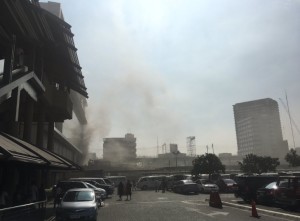MANILA — Ride sharing service Uber launched on Monday a new security feature meant to reduce fraud, help drivers guard against “compromised accounts” as well as provide passengers with an additional measure of safety.
The improved security procedure involves requiring Uber drivers to periodically take profile pictures of themselves — or so-called “selfies” — to allow Uber to validate with its internal database whether the person driving the designated vehicle at any given time is the same one declared in the company’s records.
With the service called “Real-Time ID Check,” Uber said it would be able to reduce fraud, helping drivers protect their accounts from being compromised. This extra layer of protection can help ensure riders that the right person is behind the wheel.
“We at Uber are constantly looking for ways to strengthen our technology-enabled security features,” Uber Philippines general manager Laurence Cua said in a Taguig City on Monday. “We look into new solutions and test them to proactively use and maximize the capability of available technologies, and how these can be instrumental in our commitment to providing safe, reliable, and convenient rides.”
The new feature, which was launched initially in several countries where Uber operates, will require drivers to use a new feature on the company’s smartphone-based software that requires a selfie to be taken before they go online and accept rides.
The photo taken by the driver is then compared to the one already on file with the account.
If the two photos don’t match, the account would be temporarily blocked while Uber representatives look into the situation, according to Cua.
Following its initial release in the US last September 2016, Uber is rolling out the feature across 16 countries, namely South Africa, Egypt, Russia, Bahrain, UAE, Qatar, India, Singapore, Australia, Indonesia, Chile, Mexico, Brazil, Colombia, Pakistan and the Philippines.
Cua said the number of complaints in the Philippines regarding situations where the identity of the driver does not match declared identity has been “extremely small,” most of which have been caused by previous drivers failing to log out of their Uber accounts before turning over the vehicle to another driver.
Cua explained that the security feature would improve the peace of mind of Uber riders knowing that the identities of their drivers have been carefully monitored by the company. SFM/rga



